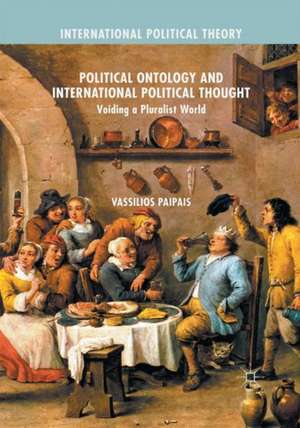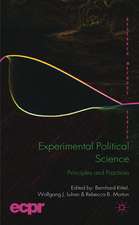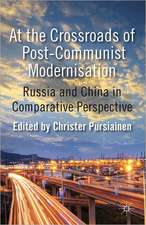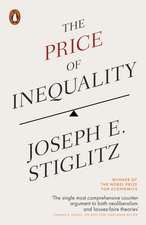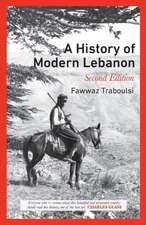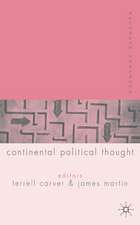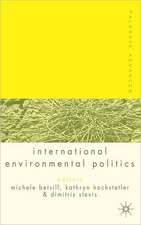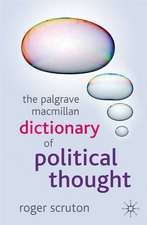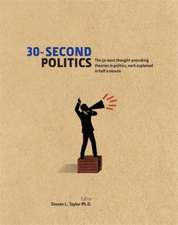Political Ontology and International Political Thought: Voiding a Pluralist World: International Political Theory
Autor Vassilios Paipaisen Limba Engleză Paperback – 22 feb 2019
| Toate formatele și edițiile | Preț | Express |
|---|---|---|
| Paperback (1) | 737.58 lei 38-44 zile | |
| Palgrave Macmillan UK – 22 feb 2019 | 737.58 lei 38-44 zile | |
| Hardback (1) | 785.74 lei 6-8 săpt. | |
| Palgrave Macmillan UK – 17 noi 2016 | 785.74 lei 6-8 săpt. |
Din seria International Political Theory
- 18%
 Preț: 1231.47 lei
Preț: 1231.47 lei -
 Preț: 357.89 lei
Preț: 357.89 lei - 15%
 Preț: 636.45 lei
Preț: 636.45 lei -
 Preț: 158.77 lei
Preț: 158.77 lei -
 Preț: 358.18 lei
Preț: 358.18 lei -
 Preț: 382.95 lei
Preț: 382.95 lei - 15%
 Preț: 466.31 lei
Preț: 466.31 lei - 15%
 Preț: 643.00 lei
Preț: 643.00 lei -
 Preț: 213.97 lei
Preț: 213.97 lei -
 Preț: 385.84 lei
Preț: 385.84 lei - 15%
 Preț: 641.03 lei
Preț: 641.03 lei -
 Preț: 385.84 lei
Preț: 385.84 lei -
 Preț: 394.87 lei
Preț: 394.87 lei - 18%
 Preț: 890.37 lei
Preț: 890.37 lei - 15%
 Preț: 634.14 lei
Preț: 634.14 lei - 15%
 Preț: 635.15 lei
Preț: 635.15 lei - 18%
 Preț: 727.00 lei
Preț: 727.00 lei -
 Preț: 388.72 lei
Preț: 388.72 lei - 15%
 Preț: 642.51 lei
Preț: 642.51 lei - 18%
 Preț: 729.36 lei
Preț: 729.36 lei - 15%
 Preț: 639.08 lei
Preț: 639.08 lei -
 Preț: 391.61 lei
Preț: 391.61 lei -
 Preț: 394.51 lei
Preț: 394.51 lei -
 Preț: 383.93 lei
Preț: 383.93 lei -
 Preț: 389.70 lei
Preț: 389.70 lei - 18%
 Preț: 736.50 lei
Preț: 736.50 lei -
 Preț: 385.62 lei
Preț: 385.62 lei -
 Preț: 388.52 lei
Preț: 388.52 lei -
 Preț: 392.60 lei
Preț: 392.60 lei -
 Preț: 384.86 lei
Preț: 384.86 lei - 15%
 Preț: 638.89 lei
Preț: 638.89 lei -
 Preț: 390.63 lei
Preț: 390.63 lei
Preț: 737.58 lei
Preț vechi: 810.53 lei
-9% Nou
Puncte Express: 1106
Preț estimativ în valută:
141.13€ • 147.37$ • 116.54£
141.13€ • 147.37$ • 116.54£
Carte tipărită la comandă
Livrare economică 11-17 aprilie
Preluare comenzi: 021 569.72.76
Specificații
ISBN-13: 9781349848652
ISBN-10: 1349848654
Pagini: 241
Ilustrații: XIV, 241 p. 1 illus. in color.
Dimensiuni: 148 x 210 mm
Greutate: 0.32 kg
Ediția:1st ed. 2017
Editura: Palgrave Macmillan UK
Colecția Palgrave Macmillan
Seria International Political Theory
Locul publicării:London, United Kingdom
ISBN-10: 1349848654
Pagini: 241
Ilustrații: XIV, 241 p. 1 illus. in color.
Dimensiuni: 148 x 210 mm
Greutate: 0.32 kg
Ediția:1st ed. 2017
Editura: Palgrave Macmillan UK
Colecția Palgrave Macmillan
Seria International Political Theory
Locul publicării:London, United Kingdom
Cuprins
Introduction: Ontology and depoliticisation in a pluralist world.- PART I: A Phenomenology of Depoliticisation in Theorising a Pluralist World.- Chapter 1: Depoliticisation in liberal and post-liberal ontologies.- Chapter 2: Depoliticisation in critical dialogic ontologies.- Chapter 3:Depoliticisation in agonistic ontologies.- PART II: Political Ontology and the Future of Politics.- Chapter 4: From stasis to tragedy: ontology and phenomenology of political difference.- Chapter 5: Traversing the fantasy and the ‘morning after’: from political ontology to theopolitical meontology.- Epilogue: The politics of (im)pure criticism.- Bibliography.- Index.
Notă biografică
Vassilios Paipais is Lecturer in International Relations at the University of St Andrews, UK. He was previously Teaching Fellow at the University of Edinburgh and at the London School of Economics and Political Science (LSE). He earned a PhD in International Relations from LSE and has published in various leading International Relations journals.
Textul de pe ultima copertă
This book challenges received notions of ontology in political theory and international relations by offering a psychoanalytically informed critique of depoliticisation in prominent liberal, post-liberal, dialogic and agonistic approaches to pluralism in world politics. Paipais locates the temptation of depoliticisation in their labouring under the fundamental fantasy of various guises of foundationalism (in the form of either political anthropology or ontology as ‘in the last instance’ ground) or, conversely, anti-foundationalism (the denial of all grounds, yet still operating within a foundationalist imaginary). He argues, instead, for a formal political ontology of the void (against historicism) shot through an ‘incarnate’ messianic nihilism (against ethicism and teleological forms of politics). In so doing, the author offers critical readings of the messianic nihilism of Benjamin, Agamben, Taubes and Žižek by problematising the antinomian tendencies in their respective politicaltheologies. The book argues for a version of Žižek’s Badiouian politics of militancy supplemented by a proper participatory understanding of St Paul’s messianic meontology and incarnational Christology as a means to reconceptualise the nexus between subjectivity, universality and political action in world politics. It will be of interest to students and scholars of international relations theory, political theory, critical social theory and political theology.
Caracteristici
Offers an interdisciplinary approach by applying philosophical discourse to international theory Uniquely evaluates International Political Theory from the perspective of Lacanian ideology critique Proposes an ontological as opposed to epistemological interpretation of ideology critique
